In Fairness to Childhood
The School of Business works with Fairtrade International to eliminate child labor
The sleekly modern 120-room Ibis Hotel in Asuncion, Paraguay, is but a short drive from some of the fields and farmlands where so many Paraguayans – and their children – toil. While the country is a leading producer of soybeans, stevia, corn and organic sugar, many of its farmers barely eke out a subsistence living.
Visitors staying at the Ibis, enjoying the cosmopolitan attractions of Paraguay's capital city Asuncion, could easily ignore the realities of a world where the International Labour Organization (ILO) estimates that nearly 168 million children are engaged in work that strips them of their dignity, stunts their development and disrupts their educations.
"The risk of child labor in the global supply chain is both apparent and complex," says School of Business Professor Nicole Bryan, director of Corporate Social Responsibility Initiatives.
Bryan, herself, has been a regular visitor to the Ibis Hotel – and to Paraguay – to help School of Business partner, Fairtrade International, learn about best practices that prevent child labor – while empowering local producers to minimize their dependence on it.
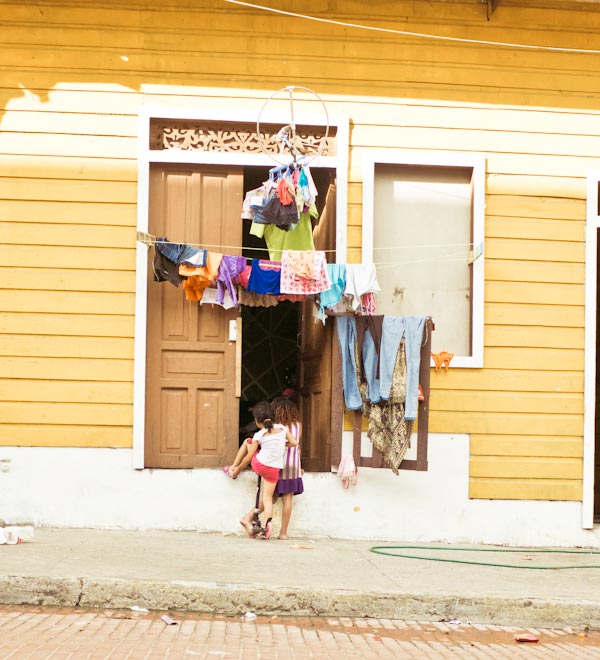
Children in Panama City, Panama, where professor Nicole Bryan attended her first Fairtrade International labor training session. Photos by Shawn Escoffery
Putting children first worldwide
Founded in 1988 to promote fair trade, Fairtrade International is today part of a $5.7 billion-a-year movement benefiting more than 1.35 million of the world's farmers and workers. "Fairtrade helps small farmers and consumers gain control," Bryan explains. "The demand for ethically sourced products is real."
The University has been involved with Fairtrade since 2012, when Bryan met Anita Sheth, Fairtrade International senior advisor on social compliance and development, at a conference about human trafficking.
Sheth has twice visited the University, including a trip in July 2014 to join Bryan and Robert D. McCormick Center for Child Advocacy and Policy Director Jason Dickinson in a panel discussion on "The Role of Evidence-Based Approaches to Human Rights and Child Protection in Global Supply Chains." On her visits, Sheth says, she was impressed by the University's interest and commitment in addressing the global poverty challenge through ethical trade.
Collaborative initiatives like those with Fairtrade International can help fill the theory-practice gap between work done in the field and classroom learning. "The opportunity for Montclair State is big," says Bryan. "At a time when governments and businesses can't do it alone, universities and not-for-profits are able to contribute to the development of ethical, responsible trade practices that are consistent with the protection of human rights, workers' rights and the development and empowerment of small producer communities."
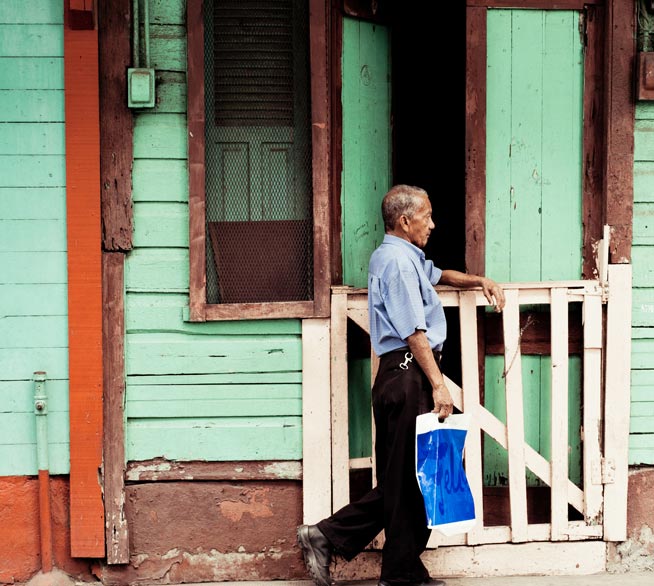
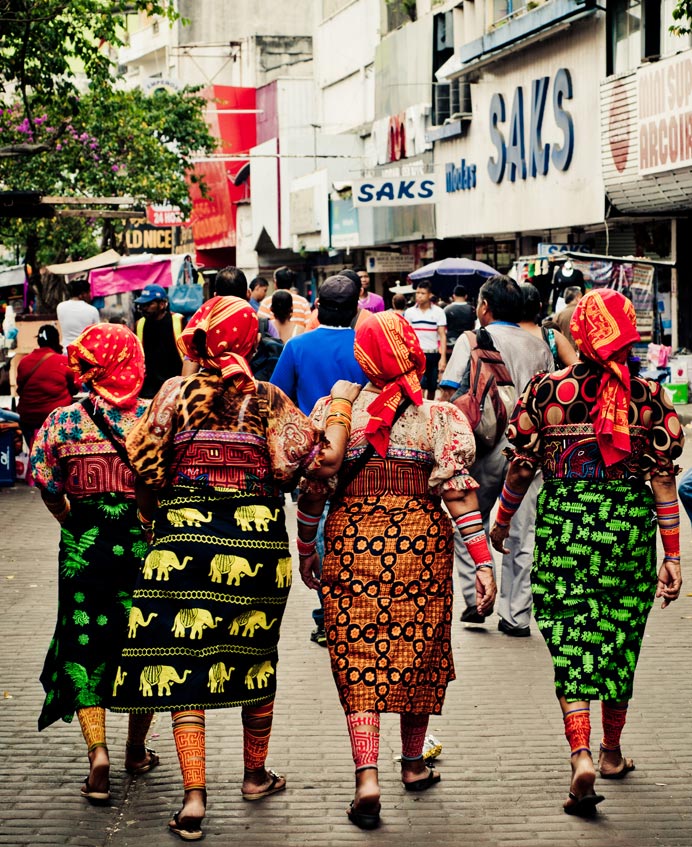
scenes from Panama City. Photos by Shawn Escoffery
Empowering farmers and youth
While Bryan has visited Paraguay three times since February 2014, when she and Sheth met with sugarcane farmers and producers during Fairtrade-hosted child labor discussions and focus groups, she observed her first Fairtrade International training session in Panama City in October 2013, which included training in labor laws and in creating safe and fair conditions for children in agricultural communities.
Last May, Bryan returned to Paraguay to help start the initial training and assist the producers in understanding how they might work to eliminate child labor. "We engaged in dialogue about youth inclusion in civic participation and how to come up with real solutions," she says. "The opportunity to meet with producers and learn about their experiences in their own voices is huge. So often the voices of small farmers are silenced in traditional trade. In Fairtrade, their voices count."
Results and longer-term expectations were the focus of Bryan's subsequent trip in February 2015. According to Sheth, information gleaned from interviews on lessons learned with producers and young people from the pilot community will be shared throughout Fairtrade. "This information will be invaluable in continuing to build awareness and knowledge of the impact of ethical trade on the next generation of producers, traders and consumers."
"This process is all about empowering people," Bryan insists. "We are truly partnering with the Fairtrade Paraguayan sugar producers, who share 50 percent of the decision making about how to implement change and remediate child labor. We are learning together."
One way the University has helped to facilitate these changes is by working on Fairtrade's training manual. "We have been working with a keen group of Montclair State students and professors to convert Fairtrade's training manual on 'Youth Inclusive Community Based Monitoring and Remediation on Child Labour' into reader-friendly formats that will reach hundreds of Fairtrade producer organizations throughout our global system," Sheth says.
A campus-wide collaboration
The training manual is a key step in the ongoing process of empowering producers like those in Paraguay. The project involved students and faculty from across the University community, with student volunteers translating the manual from English into Spanish and French.
Ivory Coast native Pierre Agbadou, who expects to earn his master's degree in French in May 2015, incorporated his experience translating the manual from English to French into his thesis. "The 90-page manual is a very humane document that explains the ins and outs of Fairtrade – what its purpose is and who and what it fights for," he says. "It puts its focus on the producers and the children."
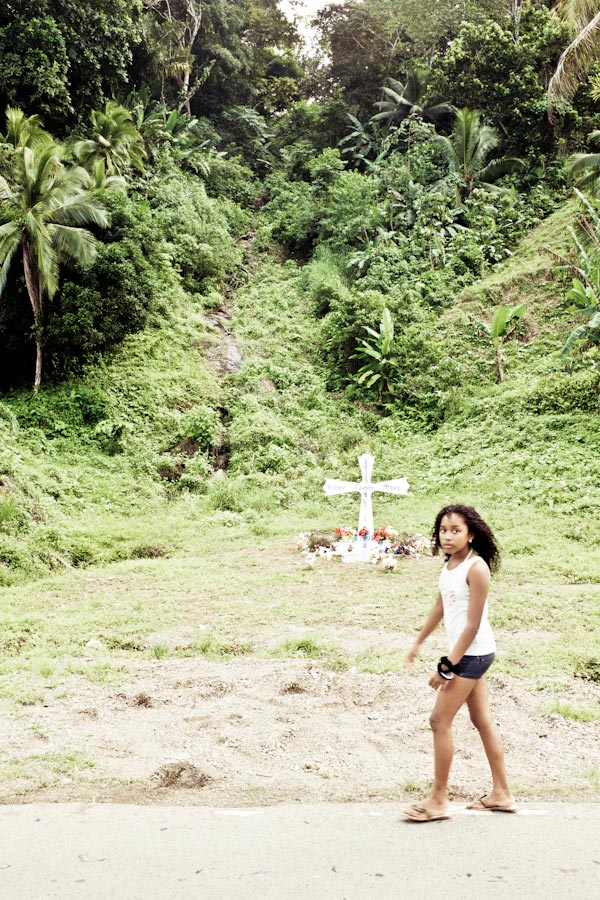
scenes from Panama City. Photos by Shawn Escoffery
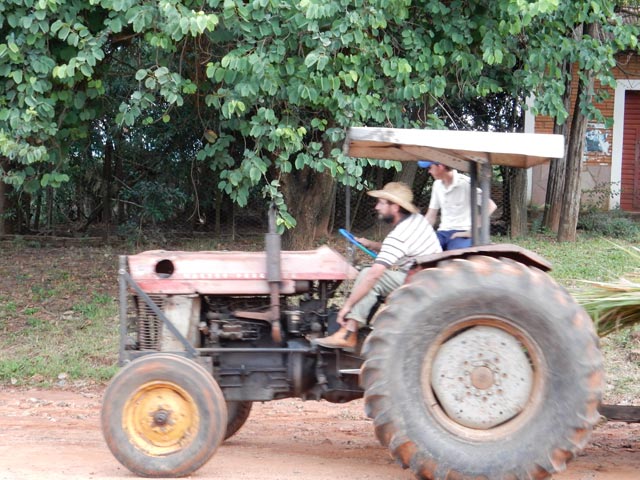
A worker in Paraguay. Photo by Nicole Bryan
French graduate student, Seraphine Nzue-Agbadou '13, also worked on parts of the French translation. "For me, the biggest benefit has been becoming familiar with Fairtrade and what it stands for: children's and farmers' rights, education and protection – causes worth fighting for," she says.
Rosemary Soto '14, a native of Peru, served as the point person and project manager for the manual's Spanish translation. "She really brought things together on the project with her knowledge of jurisprudence and international law," says Bryan.
"My experience with Fairtrade International has been both educational and life changing," says Soto. "Oftentimes students think they don't have the necessary experience or knowledge to impact change. But this experience has taught me otherwise."
According to Lois Oppenheim, professor and chair of the Department of Modern Languages and Literatures, students have learned a lot from the Fairtrade manual project. "It allows them to see how multinational agreements are set up and to learn about the interplay between the different interests of labor, the environment and big business. It is a remarkable opportunity for our students."
Bryan notes that for the past three semesters, students in School of Communication and Media Professor Philip Bakelaar's capstone Organizational Consulting course also have been engaged in the Fairtrade manual project.
"There is truly a University-wide engagement in the Fairtrade initiative," Bryan says.
Bakelaar notes: "We worked on visual communication strategies for supplementing the manual. Students developed a series of visuals to help farmers understand and remember important information relevant to their participation in the Fairtrade program and child labor laws."
"The initiative was very rewarding for the students as they felt a connection to a global issue and saw clearly how their studies could equip them to make significant contributions to positive social change," Bakelaar says.
Aspects of the Fairtrade initiative have also been integrated into both undergraduate and MBA courses covering ethics and international business topics taught by Bryan and others in the School of Business.
"It is encouraging to know that there is a company that stands for the rights of children in third world countries who are often forgotten, abused and neglected by relatives who are supposed to protect and care for them," Nzue-Agbadou says. "Any company that fights for the rights, protection and well-being of children is worth acknowledging."
